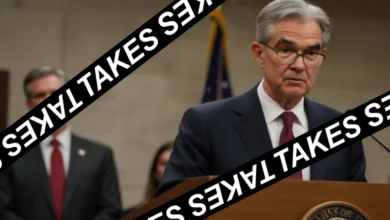Bitcoin Showed Up in DC — And Washington Took Notice

Bitcoin Magazine
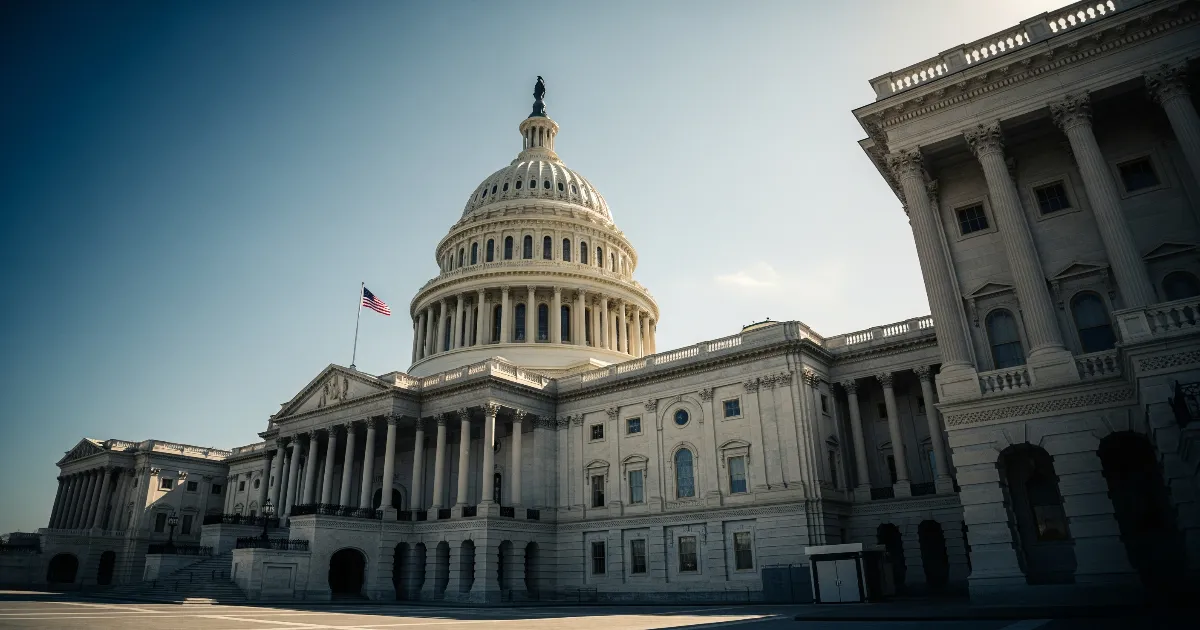
Bitcoin Showed Up in DC — And Washington Took Notice
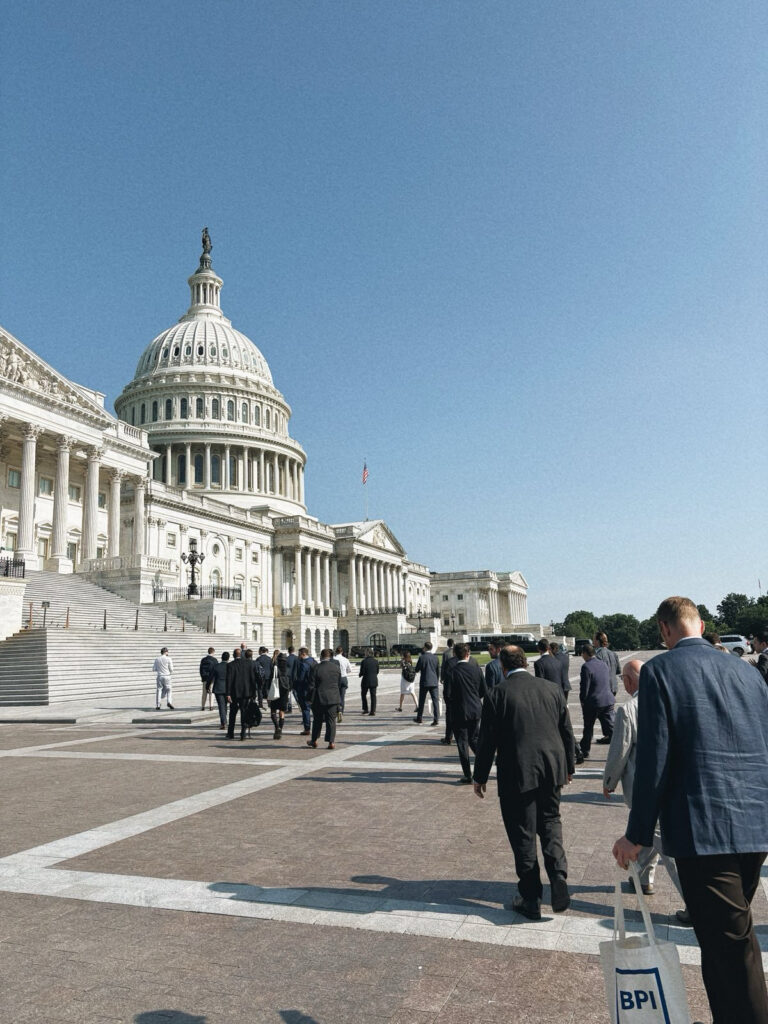
By Zack Cohen, Bitcoin Policy Institute
Before diving into the recap, I want to say thank you. On behalf of the entire team at the Bitcoin Policy Institute, thank you to everyone who attended, supported, spoke, tuned in, or participated in any way. We spent months preparing for our third Bitcoin Policy Summit. What unfolded in Washington last week exceeded anything we could have expected.
More than 1,000 people joined us: builders, policymakers, students, agency staff, journalists, energy experts, and human rights advocates. And what they found was not a party dressed up as a conference, but a serious two-day working session that reflected how far the Bitcoin conversation has come – and where it’s going.
Bitcoin has long been misunderstood or sidelined in DC. It’s been easy for policymakers to dismiss or ignore it. But the 2025 Summit sent a different signal: Bitcoin isn’t going away. It’s not on the fringe. It’s at the center of emerging conversations about national strategy, economic strength, digital rights, and innovation.
A Welcome That Set the Tone
We opened the week with a packed welcome party, co-hosted with our friends at PubKey. To outsiders, DC may seem like a rigid town — buttoned-up, formal, slow-moving. But if you spend real time here, you know the truth: DC runs on relationships. And relationships are built in places like this.
Over 450 attendees gathered in a room buzzing with live karaoke, strong cocktails (shoutout to Unchained for devising the Old Fashioned Bull Run and the Miner’s Mule), and constant conversation. It was loud. It was joyful. But most of all, it was serious energy. Bitcoiners had arrived.
Who Was in the Room
This year’s summit brought in:
- 1,000+ total attendees
- 300+ public policy professionals
- 35 congressional offices, including 12 members of Congress
- 100+ federal government employees
- 50+ members of the press
- 49 universities
- 90,000+ livestream viewers
Attendees included national security experts, financial regulators, think tank analysts, open-source developers, nonprofit leaders, and more. Bitcoin’s coalition is broadening, and it showed.
What We Talked About
The program was structured around clear themes: national security, energy, privacy, financial inclusion, and legislative strategy. Keynotes, panels, and lightning talks made space for both technical depth and broad vision.
In the opening segment, Zack Shapiro outlined BPI’s national strategy framework — a vision of American Bitcoin leadership grounded in open-source values, resilience, and forward-looking policy. That was followed by a sharp panel on Senate priorities, including the BITCOIN Act.
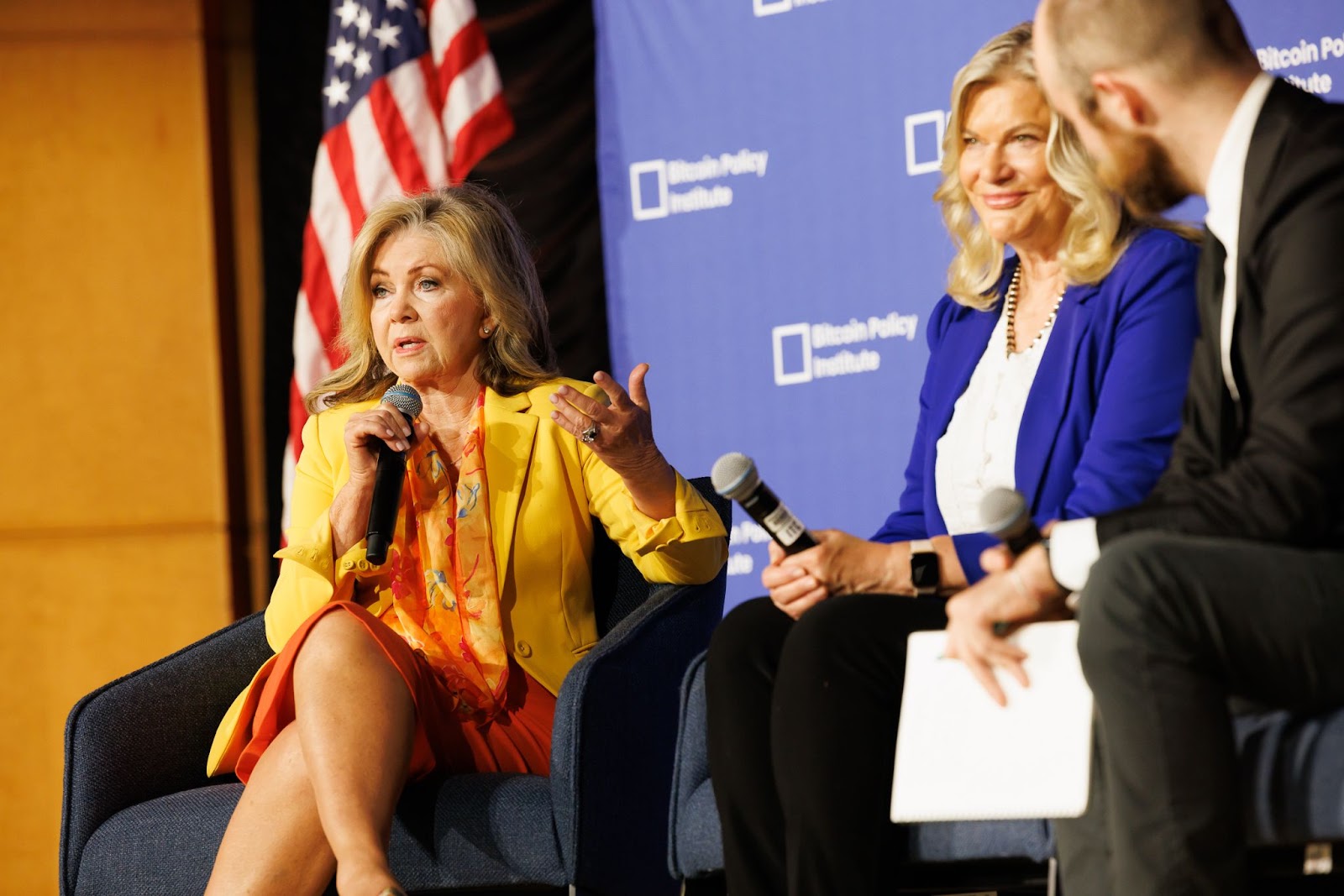
Alex Leishman gave a data-rich talk on the American Bitcoin advantage — why our institutions, capital markets, and rule of law position the US to lead. Alex Gladstein brought the human rights lens to life, reminding the room that Bitcoin is still the most powerful freedom technology of the 21st century.
Patrick Witt, Deputy Director of the President’s Council on Digital Assets, reiterated the administration’s strategic interest in Bitcoin, highlighting ongoing progress:
“There will be the forthcoming report on the interagency activities. We’ve already taken some steps with the SPR. The question now is, how do we follow that up with an accumulation plan? There’s no shortage of opportunities and work to be done. So after we leave here, I’ll get right back to it.”
Two democrats, Rep. Ritchie Torres (D-NY) and Rep. Josh Gottheimer (D-NJ) joined Bitcoin Core’s 10th known developer Matt Corallo and BPI Co-president Grant McCarty to discuss the need for making the Blockchain Regulatory Certainty Act bipartisan.
At one point during the panel, Rep. Torres remarked,
“The value of Bitcoin is more secure than the value of gold because you can always find more gold, but the supply of Bitcoin in the world is going to remain fixed in perpetuity.”
Rep. Gottheimer, who recently signed on as a co-sponsor of the bill, joined Rep. Torres on stage to explain his decision to co-sponsor the bill and underscore the importance of protecting innovators and preserving the integrity of the open-source development ecosystem.
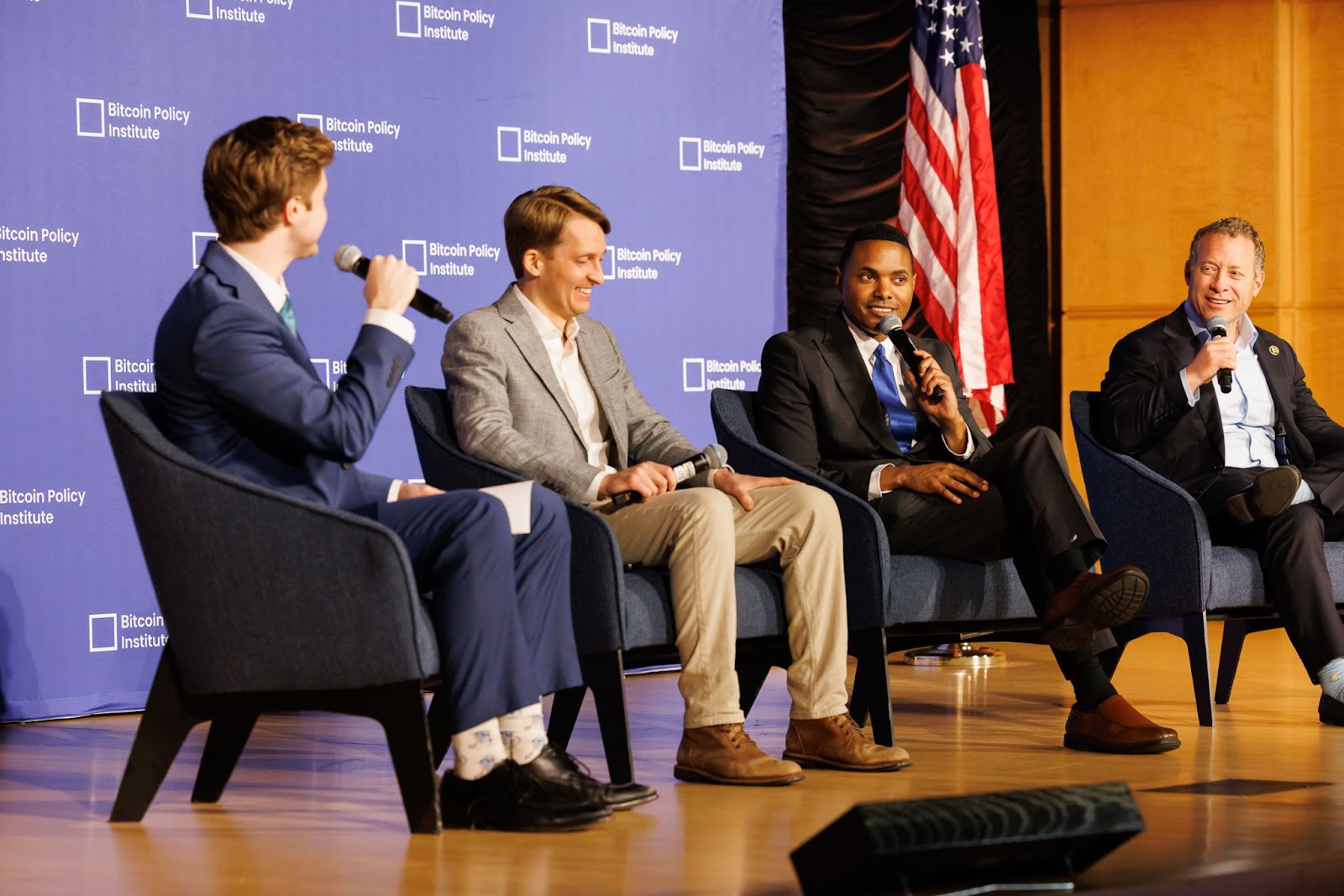
In one of the most high-impact sessions, BPI’s Zack Shapiro sat down with SEC Commissioner Hester Peirce to discuss ETF structure, qualified custody, and what the future of Bitcoin-native financial infrastructure might look like. It was detailed, honest, and substantive — exactly what this moment calls for.
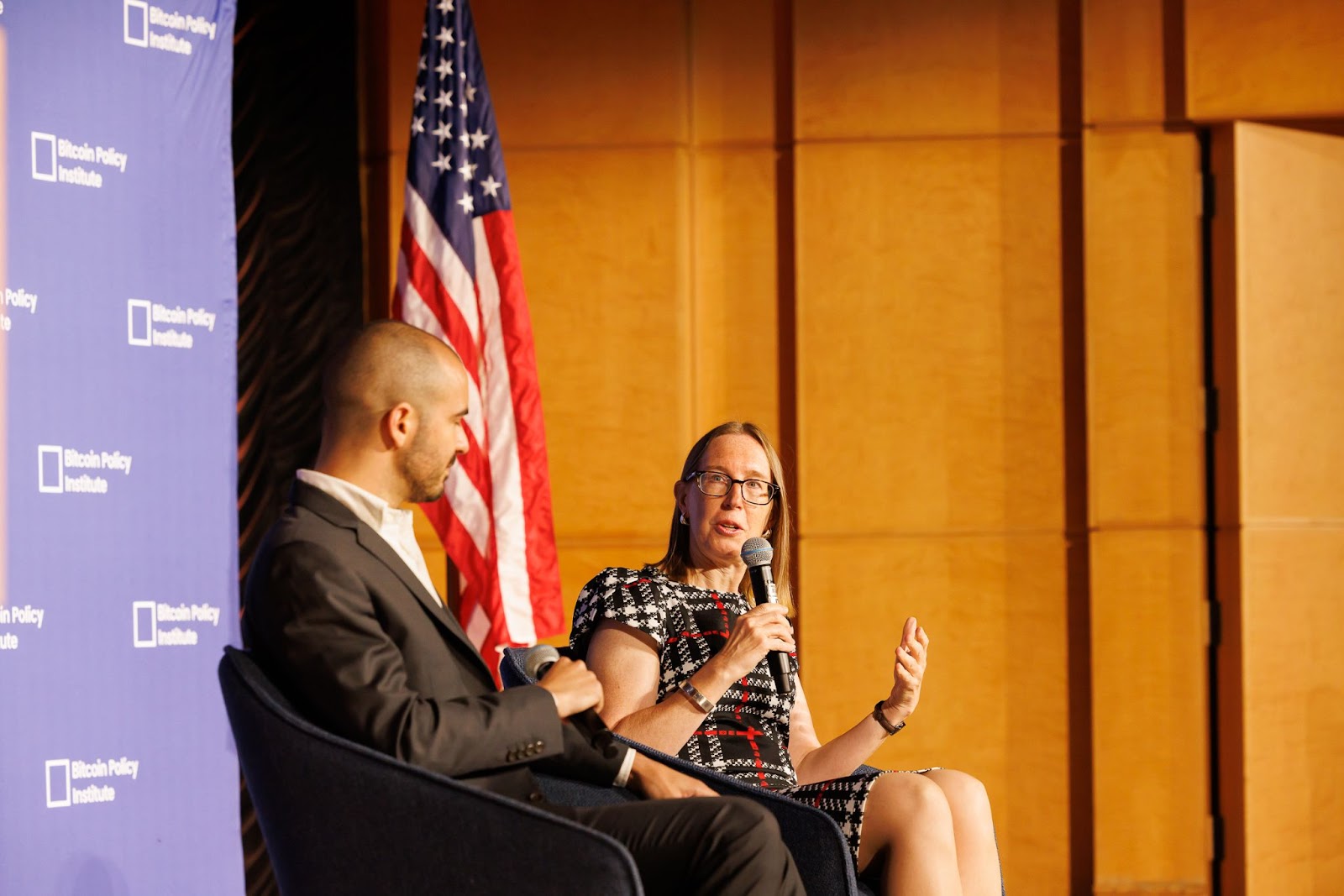
Office Hours and the Q&A Room
New this year, we introduced structured office hours: one-on-one sessions where attendees could sit down with our research fellows. These conversations dug into mining, privacy, regulation, and monetary strategy in an unfiltered setting.
The Q&A Room added another layer of depth. Cygnal CEO Brent Buchanan walked through a recent poll of 800 likely midterm voters. The findings were clear: Bitcoiners are becoming a political constituency. Ignore them at your own risk.
Anna Chekhovich also led a foundational Bitcoin 101 session for policymakers, breaking down the basics of Bitcoin in plain language, rooted in her global human rights work.
Bitcoin on the Hill
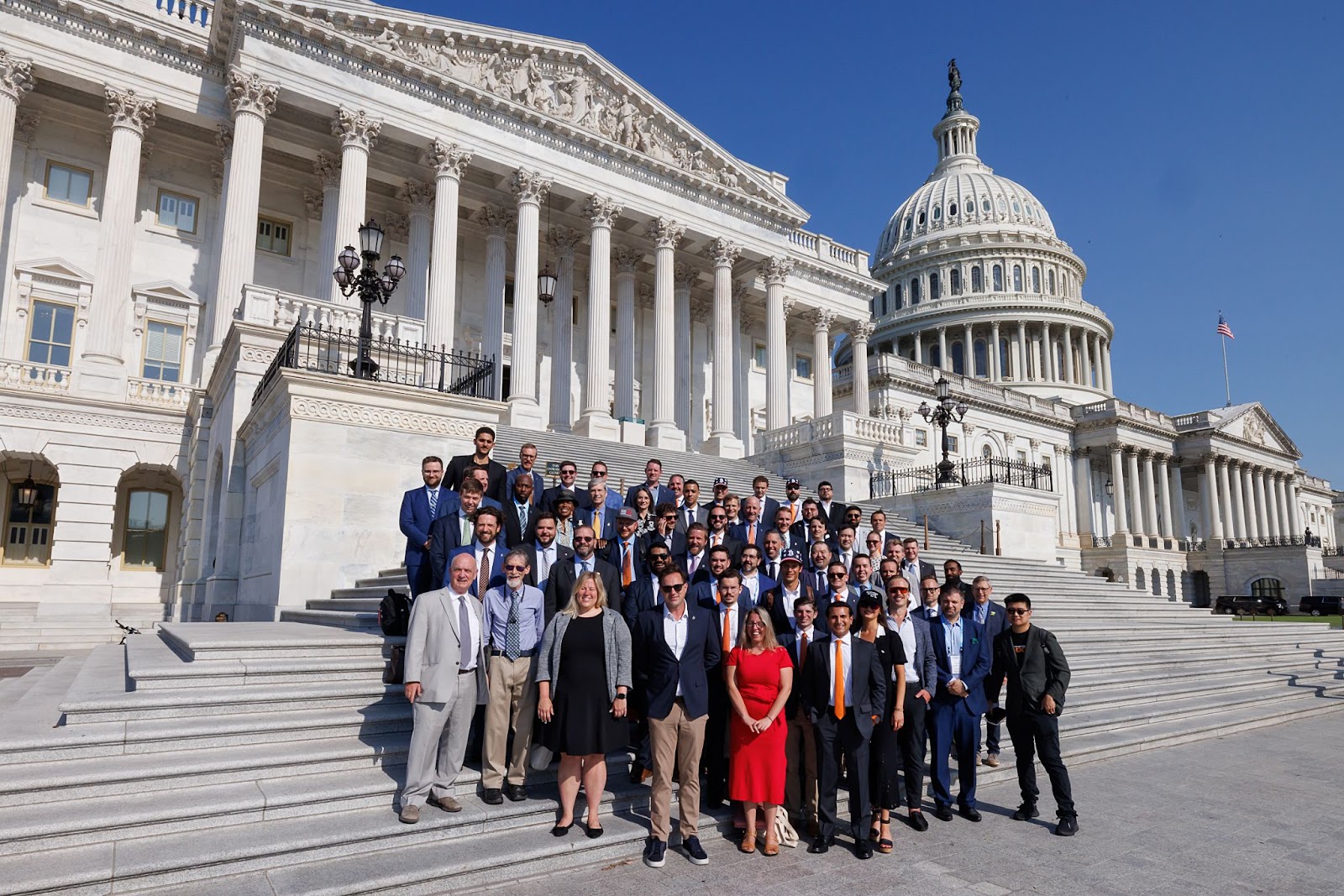
BPI’s Day on the Hill marked the largest coordinated effort to date of Bitcoin advocates engaging directly with lawmakers. Over 120 attendees participated in 118 confirmed meetings with congressional offices:
- 48 Senate offices
- 70 House offices
- Over 10 meetings at the member level
- Offices from 68 Democrats and 50 Republicans
- Representation from 28 states, DC, and a U.S. territory
This wasn’t performative. It was strategic. For many in Congress, these were the first real conversations they’d had with serious, mission-driven Bitcoin advocates.
Reflections
What stood out this year was the tone. Bitcoiners came dressed in suits. Not as a costume, but as a signal. We came to engage seriously. The excitement in the room wasn’t hype — it was grounded in focus, preparation, and a shared sense that this moment mattered.
And DC responded. Policymakers and staff weren’t just open, they were engaged. They asked good questions. They listened. The distance between Bitcoin and Washington is shrinking, fast.
Personally, the most striking realization was that Gen Z had shown up in force. It wasn’t just the number of young people in the room—it was their presence. They were engaged, sharp, curious, and genuinely excited to be part of the conversation. I’ve been to more conferences than I can count, and this was the first time it felt like my peers weren’t watching from the sidelines. They were in it—asking questions, driving dialogue, shaping the future. And best of all, we’re only just getting started.
This Is Only the Beginning
The Bitcoin Policy Institute is uniquely positioned to host a summit that answers to no one but its mission. Bitcoin isn’t asking for special treatment. It’s not lobbying for handouts. It’s making a case, on the merits, for why it matters to American sovereignty, innovation, and economic freedom.
That case just got a lot harder to ignore.
See you next year.
This is a guest post by Zach Cohen. Opinions expressed are entirely their own and do not necessarily reflect those of BTC Inc or Bitcoin Magazine.
This post Bitcoin Showed Up in DC — And Washington Took Notice first appeared on Bitcoin Magazine and is written by Zack Cohen.
Source link




